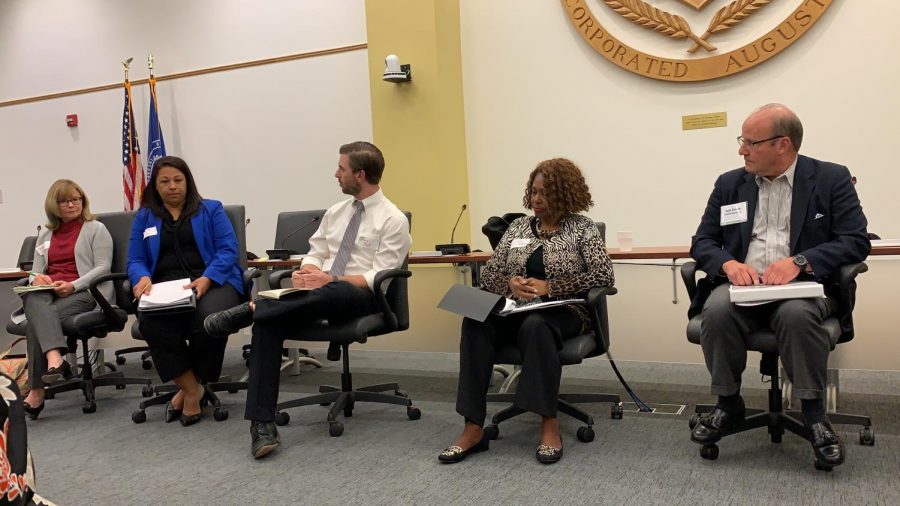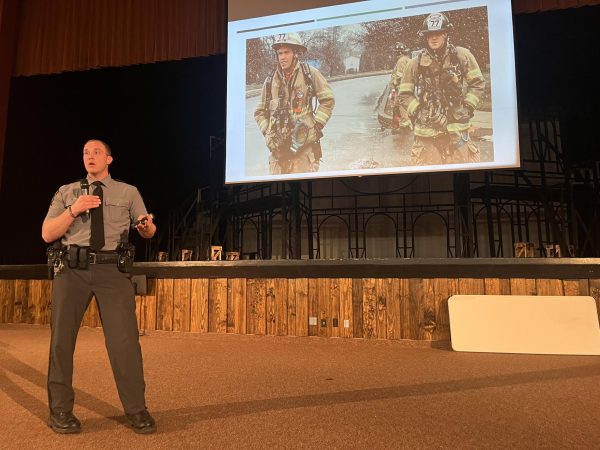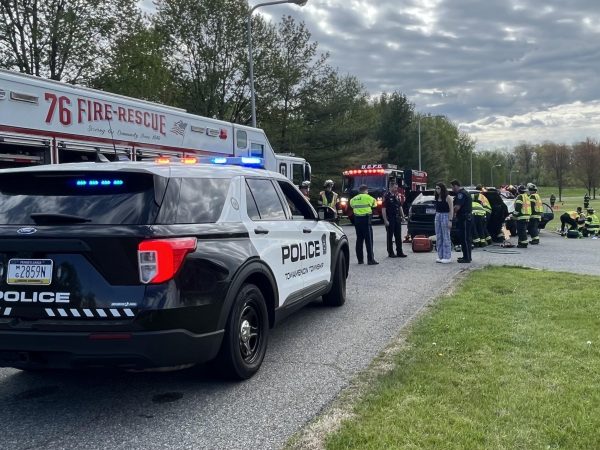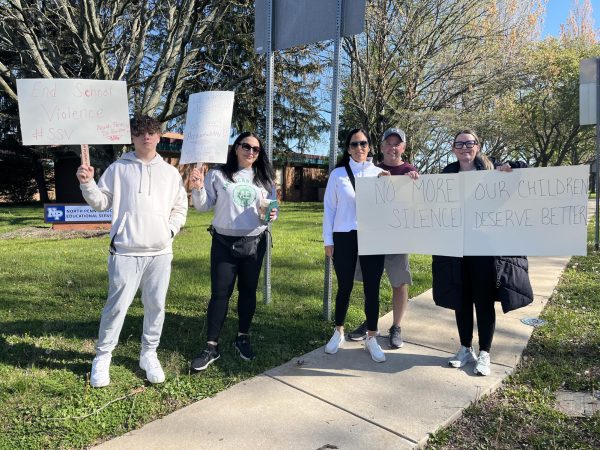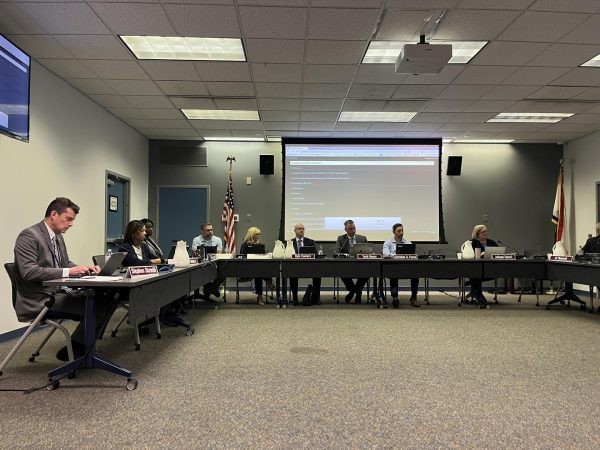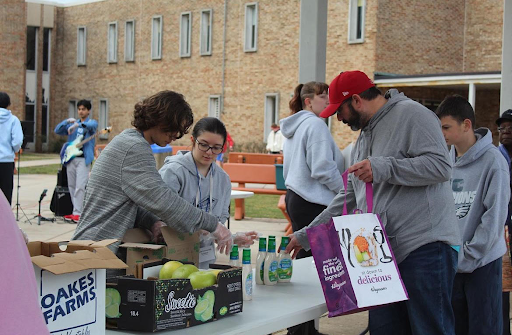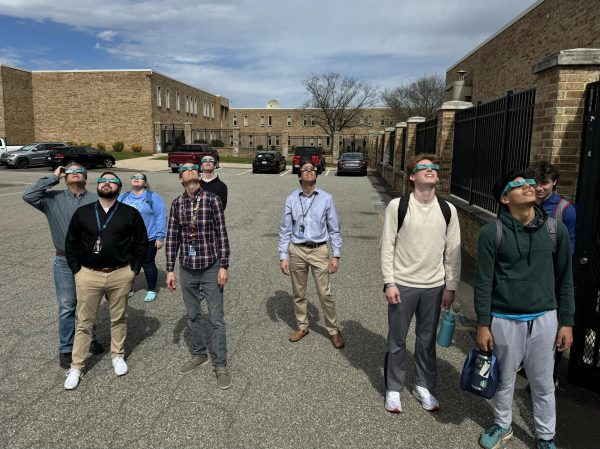Ambler NAACP presents town hall for school board candidates
With over 12,000 students at North Penn School District, the discussion of diversity is crucial in order to fulfill the needs of students who are the face of our future.
North Penn School Board candidates discussing the significance of diversity in the North Penn School District. From left to right are candidates Cathy Wesley, Elisha Gee, Dan Bell, Wanda Lewis-Campbell, and Ned Smith.
TOWAMENCIN — On Tuesday, October 8th, the Ambler National Association for the Advancement of Colored People (NAACP) hosted a town hall debate for the school board candidates to discuss the topic of diversity. As the North Penn School District consists of various cultures, races, socioeconomic backgrounds, and abilities, the discussion of diversity is a vital component to ensure that every student receives the best education possible.
The NAACP is an organization that promotes the economic, political, social, educational equality of rights among minorities in order to eliminate racial discrimination.
The topics of the night included the achievement gap, disciplinary, resource funding, and memorandum of understanding policies. Prior to the forum, the candidates picked numbers out of a bag that determined their seating and the order of when he or she would answer the question from the scenario.
The moderators for the forum were Carmina Taylor who is the president of the Ambler NAACP and Brandon Flood who is the Secretary of the Pennsylvania Board of Pardons.
THE FIRST HALF: SCENARIOS
The evening began with 4 scenarios followed by a question in which 1 or 2 candidates had to answer.
SCENARIO 1: THE ACHIEVEMENT GAP
The Coleman Report, produced by James Coleman, who was a Johns Hopkins sociologist, indicated that “a student’s family background, coupled with a diverse socioeconomic mix in the classroom, appeared to be the biggest determinant of how well a child would learn.” The question that followed discussed the particular initiative the candidates would take in regards to raising awareness of the significance of the Coleman Report, and it was directed towards North Penn Views candidate Ned Smith and North Penn Neighbors for Progress candidate Tim MacBain.
“There is no one answer to resolve these racial achievement gaps. One of the things I stressed is that it is a plural; it’s not just one gap; it’s not just one reason; there’s no silver bullet; there’s no one size fits all. Individual needs need to be evaluated and where trends and commonalities can be identified, we need to do that and then seek out and offer solutions,” said Smith.
There is no one answer to resolve these racial achievement gaps. One of the things I stressed is that it is a plural; it’s not just one gap; it’s not just one reason; there’s no silver bullet; there’s no one size fits all.”
— Ned Smith
“The law says, I believe they use the term ‘equal opportunity’, right? I have a problem with the way that that federal law is written because I don’t think it’s about looking at things in an equal way; it needs to be looked at in an equitable way. We need to realize that there are students that will not need the same support as other students whether that be from being from diverse backgrounds or having various learning disabilities—various physical needs, but I do feel that when we look at resources, we really have to absolutely make sure that we are not saying here’s an extra pencil for every child if a child needs something other than a pencil,” MacBain expressed.
“41% of [North Penn’s] student population are diverse. When the new board came in in 2017, we did a climate survey which asked students and parents and teachers if students feel welcomed in the district. Guess what percentage of students did feel welcomed? 59%. Now, I’m not saying that that is an exact carrier of over 41% of diverse students, but, certainly, that tells us something that we need to do at North Penn as well,” added MacBain.
SCENARIO 2: DISCIPLINARY POLICY
The NAACP believes that the policy can be improved if school districts eliminated zero-tolerance policies regarding suspensions and expulsions; they believe that it’s better to keep students in school rather than taking away time that can be used for learning. The question discussing the recommendation was proposed to North Penn Neighbors for Progress candidate Wanda Lewis-Campbell.
“My son was a victim of such a policy when he was in North Penn High School in which he was at the point where the school wanted to suspend him for whatever reason, but I had my name in there that if anything happened to my children, they were to call me first. When they called me, I went directly to the school to see what had happened, and I advocated for my son being able to stay in school as opposed to being sent home which served no purpose for him or anyone else. The last thing I wanted my son to do was get behind in his school work,” expressed Lewis-Campbell.
“Students of color, particularly African-American and Latino, are referred more than any other race. Quickly over and over again, a black boy and a white boy can be on a school yard playing, and the teacher thinks that the black boy is too aggressive. He ends up being the one to get the referral,” Lewis-Campbell stated.
Lewis-Campbell emphasized on the significance of teachers having cultural proficiency in order to fully understand their students and prevent isolation.
Those students need to see teachers that they relate to. Representation matters.”
— Wanda Lewis-Campbell
“Those students need to see teachers that they relate to. Representation matters. They need to have teachers that are understanding and can understand that something emotional can be going on at home, in the environment, or in the classroom that could cause the student to act out. We do need to look at rectifying and changing the policy so that the students, particularly students of color, are not always sided or kicked out of school,” added Lewis-Campbell.
SCENARIO 3: RESOURCE POLICY
“Equality means that every student is treated the same; equity means giving every student what they need to be successful,” stated Flood.
The question discussing the candidates’ equity priority in terms of funding within the school district budget was directed to North Penn Views candidate Michelle Rupp and North Penn Neighbors for Progress Kathy Wesley.
“I think one of the top priorities is really looking at what the students’ needs are and really aiming our resources and meeting the needs of all of the students in the classroom,” expressed Rupp.
“I think that it’s really important that we have students of multiple levels within classrooms, different cultures, different backgrounds, different socioeconomic backgrounds. It replicates the real world, and I think it’s important for us to learn how to live with, work with, and communicate with people who are different from us because it’s so important in our ability to be successful,” added Rupp.
It replicates the real world, and I think it’s important for us to learn how to live with, work with, and communicate with people who are different from us because it’s so important in our ability to be successful.”
— Michelle Rupp
“For every funding, I start to look at academic programming and to continue focusing on school books that make the curriculum more diverse and that are more modern and reflect our perspectives now,” stated Wesley.
SCENARIO 4: THE MEMORANDUM OF UNDERSTANDING POLICY
“For every 1 white youth in the Montgomery County Juvenile Detention Center, there are 10 black youths detained as well.” said Flood.
The question, directed to North Penn Views candidate Dan Bell and North Penn Neighbors for Progress candidate Elisha Gee, asked about their initiative in order to learn about the district’s policies under the current MOU documents, and how would they ensure it aligns with the state statute and regulations.
“I spent a little over a decade as a school leader for Mastery Charter Schools down in Philadelphia… One of the most important things that I spent my time focusing on with my team across all of those buildings was ensuring students’ safety… As these laws came out and more and more of these horrifying situations like Parkland occurred, we took a step back and said we have to start analyzing how do we not just keep our doors locked tight, and how do we support our students and keep our teachers safe and train them, but how do we create a strong bond with our police and with our community so that we can ensure safety in as many ways as possible. When the MOU documentation laws came out, I was the one responsible in Philadelphia and Camden for negotiating with the police departments and getting these MOUs in place, and the things that were most critical to us were making sure there were strong and clear access for police to be able to understand, so they could support the school community, but also creating really clear and articulated methods that they could interact with because at the end of the day, police are not school disciplinarians. There are not to be in the building to enforce school rules; they are there to be safety support in critical moments,” stated Bell.
GROUP DISCUSSION
Statistics were presented to the candidates that discussed the lack of racial diversity among higher-level classes.
In 2015, there were 245 students enrolled in Calculus that year; 51% of the students were white, 46% of those students were Asian, 2% of those students were black, and 1% of those students were Hispanic.
In that same year, 299 students were enrolled in Physics; 55% of those students were white, 41% of those students were Asian, 3.3% of those students were black, and 1.7% of those students were Hispanic.
As for the Gifted and Talented Program in the district, there were 814 students in the program; 66% of students were white, 26% of students were Asian, 4% of those students were black, 2.7% of those students were Hispanic, and 1.7% of students were students who were of two or more races.
The question, what could be done to increase the equity lens on those statistics, was presented to all of the candidates to answer.
“There shouldn’t be a racial predictability to the classes; I shouldn’t walk by a class that is considered academic, and all of the students there are black or Hispanic, and I walk by an AP class and all of the students there are Asian or white. Our students need access where I believe part of the access where it’s falling is 1) prerequisites; we put a lot of barriers in place for our students, and it’s something to have a courageous discussion about, and work with our administration and our teachers,” said Gee.
“At the end of the day, if we’re not putting culturally relevant content in front of our elementary school kids, how are we going to unlock their potential as middle schoolers and high schoolers? We have to start getting to the heart as early as possible,” stated Bell.
“It begins with hiring more diverse teachers; that’s where it begins. We need to make sure that we’re putting money to diversify our school districts,“ expressed Lewis-Campbell
“What we mirror at home as parents is really important to where our students go in life. I think one of the important things that school districts should do is really connect with parents, and make sure that we are supporting what parents are doing at home so that the parents understand what’s going on at school so that we can make sure that the kids have access to education. We all need to set up high expectations for all of our students. We were told that my daughter would not be able to do a lot of things. She’s in 9th grade fully included with her peers; she taught herself Algebra in 4th grade with an iPad in a day, and we advocated hard—I mean hard—to get her access to a general education Algebra curriculum. She’s in Algebra now with her peers, and she’s doing well, but we needed to get access to those supports,” added Rupp.
THE SECOND HALF: QUESTIONS FROM THE AUDIENCE
The audience members had 1 minute to ask a candidate a question, and the candidate was given no more than 2 minutes to answer.
To start out the Q&A session, audience member discussed the treatment of black female students at North Penn, specifically the treatment her daughter had to endure while attending North Penn.
Another audience member asked a question regarding the education and resources that students who do not plan to attend college will get.
“I’d like to hear what you all think about what we offer now, and what your thoughts are for what we need to do not for the kids who are going to run power plants, but the people that are gonna build them and the people that are going to take care of the robots that are going to produce a lot of manufacture,” asked the Lansdale resident.
“College is not for every child. Being able to go out and pursue your dreams whether that is going to a trade school, whether it is being an apprentice, whether it is going into the military, whether that is any number of things; it’s empowering students to be able to learn skills, the trades, the talents, the things that get them excited, so they could go on and have post-secondary success, love their life, and be a part of a community like here in Lansdale,” said Bell.
“You’ve got students getting scholarships for sports, having a signing day-it goes on the internet and the news and we take pictures, and it is wonderful—don’t get me wrong. Why can’t we get a kid who just went through the electrical program or the mechanics program or the plumbing program or the beauty program to have a signing day because before they graduate, they’re getting jobs in our community,” said MacBain.
Helping our black and brown students is going to help all of our students,” added Gee.
“Helping our black and brown students is going to help all of our students”
— Elisha Gee
In their closing statements, the candidates emphasized on how they want to see the better for our community.
“I’m excited to get the opportunity to not just lead schools from the school administrations side but to empower our school leaders and our educators—the people who are closest to our students to be able to drive for and really do fantastic things for our students, to drive educational excellence, to drive financial stability for our district so that we could empower really thoughtful culturally relevant instructions for our kids, and also drive this to be a place where families can live for many years to come,” said Bell.
“I would like to thank the NAACP for having this form and having us come here. I’m running because I want to make a difference; I’m invested in this community. I didn’t just move here. I’ve been here. My children have come through this district, and I’ve seen their progress has gone up, and I want to be a part of that. I want to be a part of forward thinking and moving forward. That’s making action,” added Lewis-Campbell.
“Education is my passion; it is the best hope for our future. America will be saved by education someday.” — Tim MacBain
“I’m hoping that parents, some of you, will see me and want to say, ‘I’m going to run for that too in the future,’” said Lewis-Campbell.
“Education is my passion; it is the best hope for our future. America will be saved by education someday,” MacBain said.


